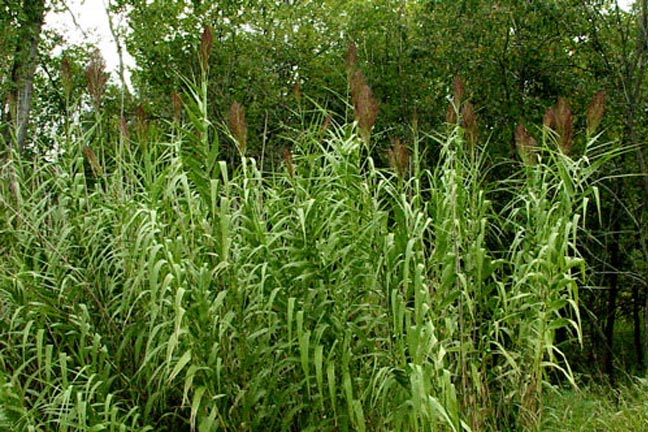
Agricultural News
WSSA Says Biofuel Best Practices are Imperative to Protect against Plant Invaders
Mon, 18 Jun 2012 10:10:46 CDT

The biofuels industry is hitting its stride, with both small farms and large-scale plantations producing renewable crops that can be converted to energy. But scientists with the Weed Science Society of America (WSSA) caution that many of these crops also are known as invasive weeds in some of the regions where they are planted. That means growers must exercise caution in order to protect our natural ecosystems.
"We don't yet have sufficient research and risk models to predict the environmental impact of these new crops in the field," says Jacob Barney, Ph.D., assistant professor of Invasive Plant Ecology at Virginia Tech. "In many ways it's a large-scale experiment, with few regulations or policy guidelines. Voluntary precautions taken by stakeholders are virtually our only line of defense."
A recent report from the National Wildlife Federation cites several examples of species cultivated for biofuels that have the potential to become harmful invaders. Among them are:
· Giant reed (Arundo donax) an invasive weed known for crowding out native plants in fragile riparian areas.
· Reed canarygrass (Phalaris arundinacea), a great threat to America's wetlands, rivers and lakes.
· Cylindro (Cylindrospermopsis raciborskii), an algae associated with toxic blooms in the Great Lakes region.
· Napiergrass (Pennisetum purpureum), an invasive plant known as one of the most problematic weeds in the world.
One of the most popular biofuels crops is giant miscanthus (Miscanthus × giganteus). This fast-growing hybrid is unable to produce seed, making it less likely to spread unintentionally than other miscanthus species. But it too can represent a threat if planted in the wrong location.
One example: Weed scientists are concerned about a now abandoned miscanthus farm located in Kentucky, on the flood plain of the Ohio River. Any plant fragments washed into the river could travel hundreds of miles - spreading miscanthus well beyond the planted fields.
Barney says it is imperative that the biofuels industry adopt best management practices to minimize the risk of weed-like crops spreading beyond the growing field. He recently collaborated with the Biofuels Center of North Carolina, as well as N.C. growers, state officials, extension specialists and environmentalists, to develop a series of best practices that serve as a common-sense example (see excerpts below):
Before planting
· Determine whether the species you intend to plant is on a federal or state noxious weed list and subject to regulation.
· If the species is not regulated and you intend to use it as a crop, establish a plan in advance for how you will eradicate any plants that escape the field.
After planting
· Don't grow potential invaders adjacent to streams, irrigation channels, major roads or utility rights of way that can serve as a "transportation corridor" for seeds and plant parts.
· Harvest crops before any viable seeds mature.
· Establish a buffer zone around growing fields and plant a perennial cover crop to keep potential invaders corralled.
· Inspect field boundaries regularly for escaped seedlings.
Install silt fences, berms or other barriers on sloping fields to intercept seeds and crop fragments on the downward side.
During harvesting
· Clean all planting and harvesting equipment and transport vehicles before moving them offsite.
· Wrap harvested bales to contain any loose seeds.
· If you are growing a plant that spreads via stem fragments, shred above-ground material to kill stem buds, or use other appropriate harvest practices.
During transport
· Cover trucks and trailers.
· Avoid routes that cross riparian zones and other highly sensitive habitats.
· Inspect rights-of-way along transport routes to ensure no plants have escaped.
Steve Wall, director of policy and environmental issues at the state-funded Biofuels Center of North Carolina, says a nursery raising biofuel grasses in Duplin County, N.C., has become the first to implement the new BMPs, and it is hoped others in the industry will do the same.
"These are simple, voluntary measures that can make a big impact," Wall says. "They help us reduce concerns about the potential impact of biofuel crops on native species as we get a new industry on its feet."
Lee Van Wychen, Ph.D., science policy director of the Weed Science Society of America, agrees. "Biofuel crops are an important, renewable energy source critical to the security of our nation," Van Wychen says. "Until researchers and policy makers have the data they need to establish science-based guidelines, we hope growers will proceed with care. We encourage them to select crops that are unlikely to threaten natural habitats and to take prudent steps to ensure plants remain only in the growing field."
WebReadyTM Powered by WireReady® NSI
Top Agricultural News
More Headlines...




















